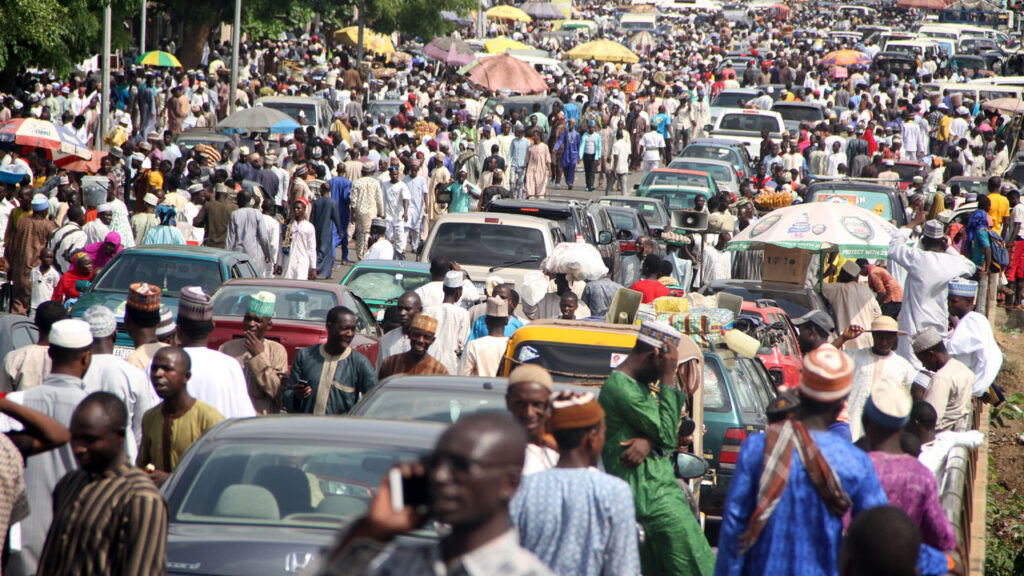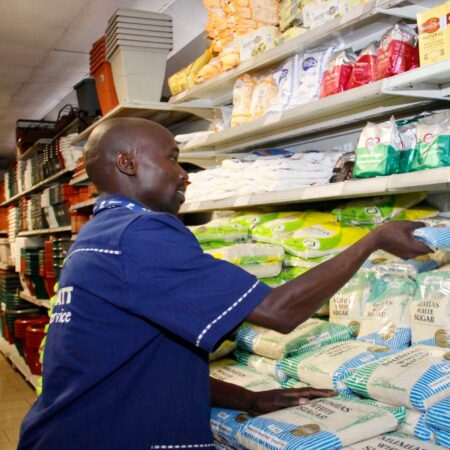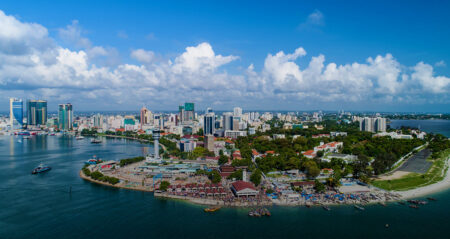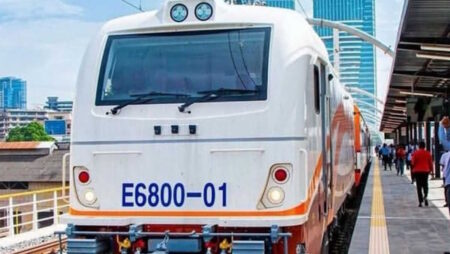- By 2050, a quarter of the world’s population (25%) will be in Africa
- Africa Investment Forum (AIF) raises US $31 billion in investment deals
- Only 33 of Africa’s 51 countries have signed the single passport protocol and only four have ratified it
Come 2050, a quarter of the world’s population (25%) will be in Africa, that in itself is a good enough reason to invest in Africa and for Africa to invest in education and workforce skill upgrade.
In fact, according to the African Development Bank (AfDB), there are two other factors that beg for increased investment in Africa. First the fact that Africa holds 65% of the world’s virgin arable land and second, Africa, by far, hosts the world’s biggest known sources of renewable energy.
As AfDB President Akinwumi Adesina put it, “the future of Africa lies in investments, not aid.”
Also Read: Africa shifting to private sector led development
In his address at the Africa Investment Forum (AIF) in Abidjan, Côte d’Ivoire earlier this year, Adesina remained confident that Africa’s economic outlook is on a positive trajectory despite a gloomy global economic outlook.
His optimism must have resonated with patrons at the AIF, dubbed ‘Africa’s largest investment marketplace’, because they mobilized over US $31 billion in investment deals at that single meeting.
Since 2018, the forum has amassed an impressive US$141 billion in investment.
At this year’s AIF, the AfDB president said the bank’s three investment priorities is setting up special economic zones for agro-industrialization, tapping renewable energy investment and pushing for the production of electric vehicles.
The growth of electric vehicles, in particular, will see increased attention in Africa due to the fact that Africa has the world’s largest cobalt and lithium deposits, the basic mineral resources required to produce electric vehicle batteries.
Also Read: EAC, Germany signs US $35 million agreement to boost livelihoods in the region
Human capital: Africa’s wealthiest resource
As pointed out, come 2050, a quarter of the world’s population (25%) will be in Africa, this enormous manpower is the continent’s most lucrative resource.
“Trade is not done in a vacuum. It’s people that trade. Apart from the fact that you need connectivity, you also need to have freedom for people to move from one place to the other,” Adesina told the media in an interview on the sidelines of the AIF.
The AfDB president went on to commend East Africa for setting an example in allowing the free movement of persons across borders using only their national IDs and not passports.
“Before in Africa, you couldn’t travel with your national ID alone, but today in eastern Africa, if you’re from any of the other countries in the region, all you need is an identification card and you can travel throughout the region,” the AfDB president said.
“We cannot say we have border-less trade when we put up barriers for people to travel,” Adesina asserted that mobility of people across the continent will determine how much Africa can gain from its enormous manpower. This is the goal envisioned by the African Continental Free Trade Area (AfCFTA).
For AfCFTA to benefit Africans there is a need for freedom of movement of people and goods.
“The ease of movement of people across Africa is much more than a question of visa access and travel documents; it is also one of flight costs, logistics, and digitization,” he told the AIF patrons.
A 2016 AfDB revealed that it is much easier for a US passport holder to travel between countries in Africa than it is for Africans themselves to move about in their own continent.
This fact that it is easier for foreigners to move about around in Africa countries than Africans might be the reason for the proposed single Africa passport, a worthy, necessary and urgent move that is yet to be realized.
However, despite the lofty but noble ambitions, easing travel with Africa for Africans remains stuck in bureaucracy. The protocol on the free movement of persons in Africa, for example, still lags in its execution. So far, only 33 of Africa’s 51 countries have signed it, and a mere four countries have ratified it.
Another effort to ease movement of persons and goods among African countries is the Single African Air Transport Market (SAATM). This practical endeavor came into existence in 2018 and was meant to free up African air space for Africans.
Impressively, as of 2021, 34 countries (75%) of Africa’s air traffic had signed the SAATM. However, to date, much remains to be determined of the SAATM with only 10 countries willing to fully implement it.
Another commendable integration move is the Pan-African Payment and Settlement System, or PAPSS. PAPSS came to life in September of 2021 as envisioned by the Africa Export-Import Bank (Afreximbank), to enable traders to make instant payment in African currencies for trade occurring within the continent.
The president of the AfDB went on to site the need for improved infrastructure if intra-African trade is to thrive.
“If flights are too expensive and it’s cheaper to fly to London or Dubai than somewhere else on the continent, it makes no sense,” he asserted bluntly.
In recognition of the need to improve infrastructure, the AfDB, through the AIF, secured $15.6 billion for the development of a six-lane highway corridor from Lagos to Abidjan.
Notably, that single corridor represents 75% of ECOWAS trade within the region. Other infrastructure works under the AfDB include the Kazungula bridge that links Namibia, Botswana, and Zambia.
Thanks to this development, travel time across this trade corridor will be reduced from 14 days to just one hour. Another US$1 billion is to be invested in the construction of another mega highway this time in East Africa.
The road will connect Ethiopia’s capital Addis Ababa with Kenya’s capital Nairobi and extend all the way to the port of Mombasa. Upon completion, this highway will increase trade by an impressive 400% between Kenya and Ethiopia.
It is such AfDB investments as presented at the Africa Investment Forum, that help ease Africa free trade and prepare the continent’s economy for global competition.
In an interesting analogy at the Africa Investment Forum, the African optimist president of the AfDB reminded the world how Africa shocked the globe back in 1960, when an Ethiopian runner Abebe Bikila broke the World record in the World’s home of Olympics in Rome and he did it barefooted.
With that he reassured skeptics and potential investors that Africa is not done, and that the economy of the ones poorest continent will rise to the heights of world record glory, with or without sports shoes.











